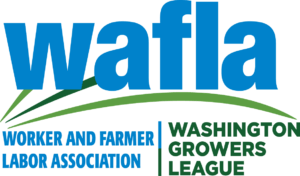In Our View: Cherries highlight need for immigration reform

In Our View: Cherries highlight need for immigration reform
The Columbian (Vancouver, Wash.)
In Our View: Cherries highlight need for immigration reform
Link to the original editorial in the Columbian (Vancouver, Wash.)
Link to the reprinted editorial in the Daily News (Longview, Wash.)
Link to the reprinted editorial in the Walla Walla Union-Bulletin (Walla Walla, Wash.)
Link to the reprinted editorial in the Lewiston Tribune (Lewiston, Idaho)
May 11, 2023
Predictions that Washington’s cherry harvest will be robust this year — even if it starts later than usual — are encouraging for the state’s important agriculture industry. But they also highlight the need for immigration reform at the national level.
For years, members of both parties in Washington, D.C., have used immigration issues to score political points. The nation would be better off if they enacted sensible policies rather than treating immigration as a wedge issue.
That is evident with our state’s cherry harvest expected to begin in mid-June — two weeks later than normal. “The bad news is that these late starts aren’t particularly good for us because we like to have volume built up and get the ball rolling before the Fourth of July,” B.J. Thurlby, president of the Washington State Fruit Commission, told The Wenatchee World. “So this is the other side — the bloom this year has been fantastic. I mean, the trees just went ‘pop,’ and they got a real nice bloom on them.”
According to the Northwest Horticulture Council, Pacific Northwest cherries made up 73 percent of the fresh U.S. sweet-cherry crop in 2022. And, of course, Washington is by far the nation’s leader in apple production and ranks among the leading states for other tree fruits.
But as those trees pop and a global market awaits Washington’s sweet summer fruits, the question becomes, “Who will pick them?”
Like nearly every industry, agriculture is facing a shortage of workers. Unlike many industries, that shortage predated the pandemic, and seasonal workers have filled some of the gaps for years.
The H2A Temporary Agricultural Program allows for foreign workers to come to the United States for up to 10 months for seasonal agriculture jobs. Unlike most visa programs, H2A was not suspended during the pandemic, and President Joe Biden declared that it is “essential to the food supply chain.”
According to the U.S. Department of Agriculture, in 2021 there were 321,000 farm jobs eligible to be filled by H2A workers, and 258,000 visas were issued. That represents the program’s growing importance to the economy; in 2005, fewer than 50,000 foreign agriculture workers were needed.
Ill-informed critics often claim that programs such as H2A are detrimental to American workers, that the government is showing preference to foreigners rather than supporting local taxpayers.
But Enrique Gastelum, chief executive of the Washington Farm Labor Association, refutes that argument. “We still don’t have the U.S. domestic workers coming in to fill jobs,” he recently told the Editorial Board of The (Everett) Herald. “No one is ready, willing and able to do that work here in Washington. In 2022, we had 33,000 available jobs and we had 11 U.S. workers apply for those jobs.”
That is a stunning statistic, and it resonates throughout the state — including Clark County. In 2017, the U.S. Department of Agriculture’s most recent farm census counted nearly 2,000 farms here, covering more than 90,000 acres and generating $47 million in annual product.
Those numbers likely have declined as the county becomes more urbanized, but agriculture remains an important part of Clark County’s economy and culture.
Bolstering the H2A program should be part of much-needed immigration reform from Congress. Border security must be strong, but it must be balanced with the need for workers and with compassion for those seeking asylum. Washingtonians who are looking forward to a bowl full of sweet summer cherries should demand action from lawmakers.
